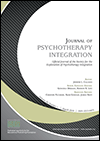Background
Presently, approaches for the early treatment of pathological anxiety in patients with chronic non-communicable diseases are lacking, thus delaying the initiation of symptom management at the early onset of the illness. Proactive psychological and psychiatric support, to alleviate subclinical symptoms of anxiety and to improve the quality of life in patients with chronic non-communicable diseases, is a promising candidate for the role of such therapy.
Aims
To investigate and determine the effectiveness of proactive psychological and psychiatric support for alleviating subclinical symptoms of anxiety and improving quality of life, in patients with chronic non-communicable diseases.
Methods
The study design was a monocentric randomised controlled trial with parallel groups. The study, involving 193 inpatients with chronic non-communicable diseases, complied with the ethical and deontological norms in accordance with the principles set out in the Declaration of Helsinki. Instruments used in the study included the Hamilton Anxiety Scale (HAM-A) to assess subclinical symptoms, the Scale of Somatic Symptoms and the Chaban Quality of Life Scale. Block randomisation was used to randomise patients to a 2-month-long study group with a proactive counselling psychiatry model care or a control group with standard regulated treatment for chronic non-communicable diseases. The allocation ratio was 1.15:1 owing to the expectancy of a higher percentage of dropout in the intervention group.
Results
After 60 days of treatment (T2), there was a statistically significant difference in all clinical parameters between the study and control groups. The median HAM-A value differed between the groups by 4.87 points, with statistically significant lower results in the study group. The comparison of the study group’s scale values on day 1 and day 60 demonstrated statistically significant changes in all three indicators.
Conclusions
Our results support existing evidence for the effectiveness of proactive psychological and psychiatric support to reduce subclinical anxiety and somatisation symptoms and to improve the quality of life for patients with common chronic non-communicable diseases. However, continued research on the effectiveness of proactive psychological and psychiatric support for patients with chronic non-communicable diseases is needed.



